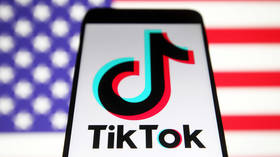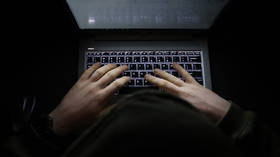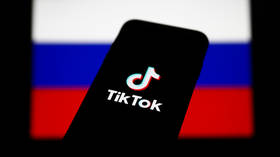White House briefs top social media influencers on Ukraine – reports

White House officials have held a special briefing on the conflict in Ukraine for some 30 social media creators, the US media have reported, adding that the Biden administration is increasingly exploring new means of communication to get its message across to younger audiences.
The briefing was held on Thursday by the White House National Security Council special adviser for communications, Matt Miller, and White House Press Secretary Jen Psaki. The officials explained the US “strategic goals in the region” and answered questions about US aid to Ukraine, about NATO and Washington’s potential reaction to a Russian nuclear strike, addressing the social media creators on a zoom call, The Washington Post has reported on Friday.
The list of those invited to the briefing included people creating “explanatory” content on the conflict on TikTok, YouTube and Twitter. According to the Post, the first to break the story, the Biden administration has cooperated with Gen Z For Change – a nonprofit group – to identify content creators for the briefing.
One of those invited was Aaron Parnas, the 22-year-old son of Lev Parnas, a Ukrainian-born American businessman and a former associate of Rudy Giuliani, former mayor of New York mayor and lawyer of then-President Donald Trump. Lev Parnas was convicted in October on campaign finance charges and pleaded guilty to conspiracy.
“We recognize this is a critically important avenue in the way the American public is finding out about the latest,” the White House director of digital strategy, Rob Flaherty, explained, adding that Washington wanted to “make sure” the social media influencers get “the latest information from an authoritative source.”
According to the Washington Post, some influencers said following the briefing they “felt more empowered to debunk misinformation and communicate effectively about the crisis.” “I’m here to relay the information in a more digestible manner to my followers,” 18-year-old Ellie Zeiler, who has 10.5 million followers, told the Washington Post after the briefing. “I would consider myself a White House correspondent for Gen Z,” the TikTok influencer added.
Others, however, appeared unimpressed by the event. “The energy of the call felt like a press briefing for kindergartners,” said Jules Suzdaltsev, a Ukrainian-born journalist who also operates a popular TikTok channel. The officials had dodged hard questions, he added.
The development comes amid an ongoing Russian military action in Ukraine. Moscow has accused Kiev of failing to implement the Minsk Agreements – a set of accords regulating its relations with the then-rebel regions of the Donbass. The Kremlin also maintains it has launched the operation to protect the people of the Donbass republics, and to “demilitarize” Ukraine.
Kiev has blasted the operation as a completely unprovoked invasion and argues that, in the first instance, it had never planned to attack the two secessionist regions.
The US media have also claimed that a lot of misinformation has surfaced on TikTok and other social media amid the conflict, and that Moscow had reportedly paid Russian influencers to share videos promoting the Kremlin’s narrative.
TikTok blocked all new content and livestreaming from Russia altogether from March 6, citing Russia’s own ‘fake news law’ that prohibits the spreading of false information about the Russian military. The company insisted at that time it was putting the “the safety of our employees and our users” first.














